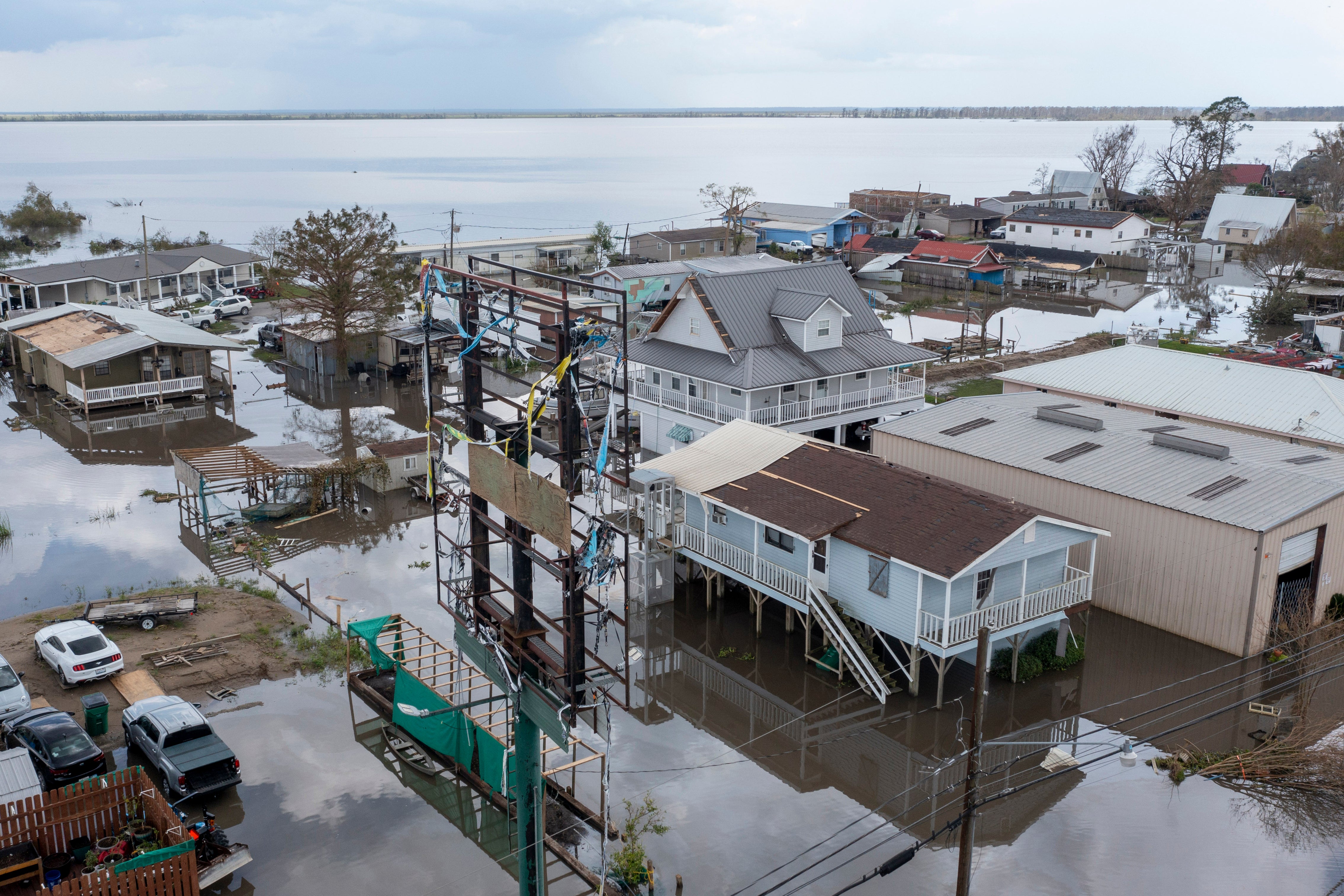Louisiana, 9 other states ask federal judge to block changes in National Flood Insurance Program
Attorneys for 10 states and some Louisiana local governments hope a federal judge will block a new system for calculating rates for federal flood insurance

Your support helps us to tell the story
From reproductive rights to climate change to Big Tech, The Independent is on the ground when the story is developing. Whether it's investigating the financials of Elon Musk's pro-Trump PAC or producing our latest documentary, 'The A Word', which shines a light on the American women fighting for reproductive rights, we know how important it is to parse out the facts from the messaging.
At such a critical moment in US history, we need reporters on the ground. Your donation allows us to keep sending journalists to speak to both sides of the story.
The Independent is trusted by Americans across the entire political spectrum. And unlike many other quality news outlets, we choose not to lock Americans out of our reporting and analysis with paywalls. We believe quality journalism should be available to everyone, paid for by those who can afford it.
Your support makes all the difference.Increases in federal flood insurance premiums that are projected to surpass 700% over the coming years are already leading people to back out of home purchases and will likely lead to an exodus of residents and businesses from southern Louisiana, officials told a federal judge Thursday in New Orleans.
The testimony came in a hearing in a lawsuit Louisiana and nine other states filed against the federal government to block sharp increases in national flood insurance rates. A phase-in of the new rates began in 2021. Annual increases are limited to 18%. The Federal Emergency Management Agency said the new method of computing rates has resulted in reductions or little or no increase for most policy holders.
But FEMA figures also show huge impending increases in some Louisiana ZIP codes. State and local officials who testified Thursday said the increases are expected to result in some people in working-class southern Louisiana to abandon their mortgages, try to sell homes that have been in families for generations, or drop their insurance.
“We've already seen a slowdown in new building,” said Matt Jewell, president of St. Charles Parish, west of New Orleans.
The implications go beyond blows to the real estate market and tax revenue. Officials said lower revenue could also hamper flood prevention and mitigation efforts. And some federal disaster programs require people in certain areas to have flood insurance — which the officials argued is becoming unaffordable.
State attorneys said during arguments before U.S. District Judge Darrel Papillion that participation in the National Flood Insurance Program requires that local governments adopt building-elevation policies and flood-control efforts that often require taxes — approved by voters believing the mitigation efforts will hold rates down.
“They turned us into liars,” state Solicitor General Liz Murrill told Papillion.
Papillion was hearing arguments on the federal government's motion to dismiss the suit and on the states' motion for an injunction blocking the rate increases pending further court proceedings. It was unclear if he would rule Thursday.
Florida, Idaho, Kentucky, Mississippi, Montana, North Dakota, South Carolina, Texas and Virginia are the other states listed as plaintiffs, along with some local governments and flood control bodies in Louisiana.
FEMA has said its new premium system is an improvement over past methods, incorporating data that wasn’t used in the past, including scientific models and costs involved in rebuilding a home. The agency has said the old method could result in people with lower-valued homes paying more than a fair share, while those with higher-value homes pay relatively less.
A return to the old system of calculating premiums would not guarantee a reduction of rates, Justice Department attorney Yoseph Desta argued.
He and other government attorneys argued Thursday that the new rate plan had been in the works for years, that the states had plenty of opportunity for input, and that the lawsuit, filed months after the phase-in began, was filed too late. They also argued the states have no standing to sue over the rates set by the National Flood Insurance Program.